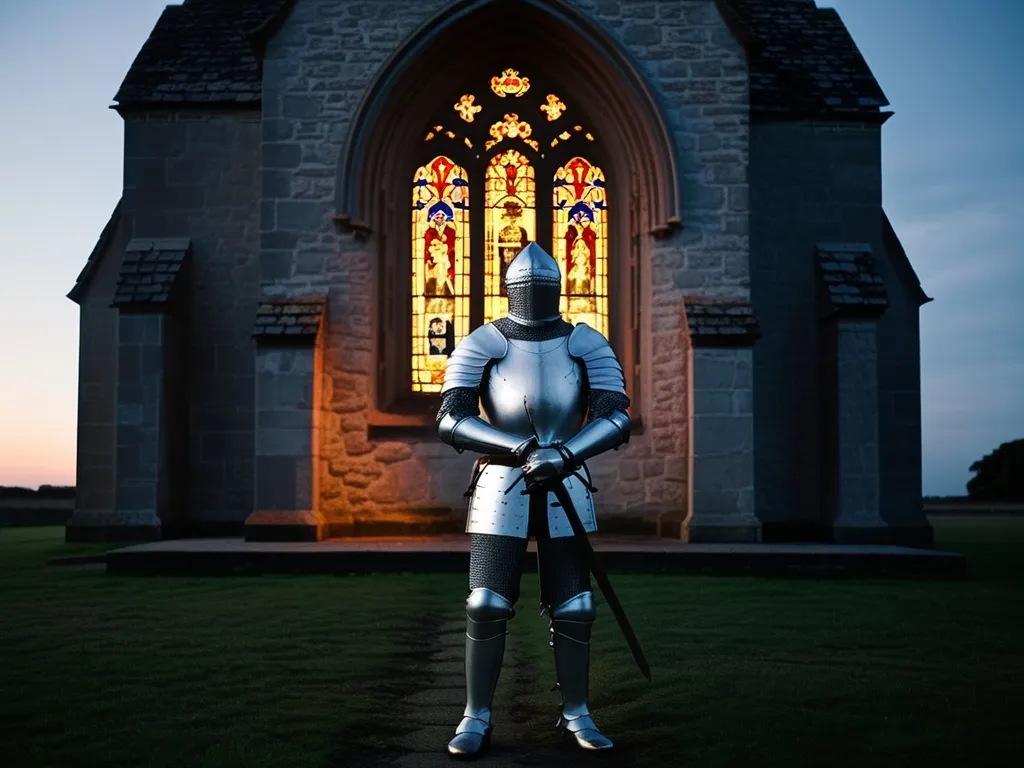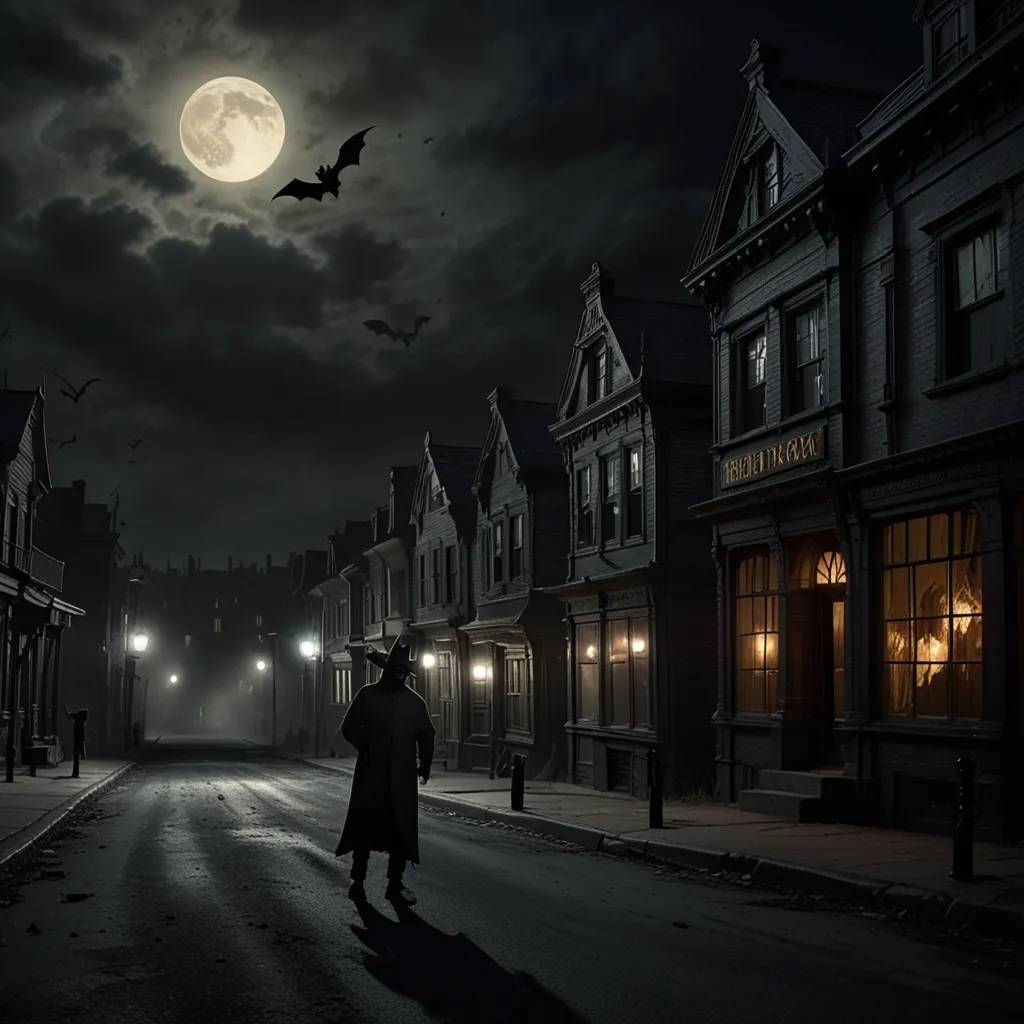The Knights Templar: Unraveling the Mystery of Their Hidden Wealth
The Knights Templar, a name that conjures up images of brave warriors, secret rituals, and hidden treasures. For centuries, people have been captivated by the legend of the Templars’ wealth, spinning countless theories and inspiring quests to uncover their secrets. But what’s the real story behind the Templars’ fortune? Is there still a hidden treasure out there waiting to be found, or is it all just a myth?
Let’s start by diving into the origins of the Knights Templar. These guys weren’t your average medieval knights. Founded in the early 12th century by Hugues de Payens and a handful of his knight buddies, the Templars started off with a pretty noble goal - protecting Christian pilgrims on their journey to the Holy Land. But as time went on, they became so much more than that.
Picture this: a group of knights who not only kicked butt on the battlefield but also ran a sophisticated banking system. Yeah, you heard that right. The Templars were like the medieval version of Wall Street bankers. They came up with this brilliant idea where pilgrims could deposit money in Europe and get a kind of medieval traveler’s check that they could cash in when they reached the Holy Land. It was genius, really. Not only did it make them filthy rich, but it also made them the go-to guys for both nobles and commoners alike.
But you know what they say - mo’ money, mo’ problems. The Templars’ wealth and influence grew so much that it eventually became their downfall. Enter King Philip IV of France, a guy who owed the Templars a ton of money and wasn’t too keen on paying it back. In 1307, on what would become known as Black Friday (and no, we’re not talking about shopping deals), King Philip ordered a mass arrest of the Templars, accusing them of all sorts of nasty stuff like heresy. It was the beginning of the end for our knight buddies.
Now, here’s where things get really interesting. What happened to all that Templar wealth? The popular story goes that the Templars had this massive treasure that they managed to hide away before they were arrested. One of the coolest theories revolves around Rosslyn Chapel in Scotland. This place is like something straight out of a Dan Brown novel.
Built in the 15th century by the Sinclair family (who were tight with the Templars), Rosslyn Chapel is a architectural marvel. It’s covered in all these intricate carvings and symbols that some people think are clues to where the Templar treasure is hidden. The chapel’s design is said to be a mirror image of the Temple of Herod, and there’s this crypt 40 feet below that’s supposedly full of documents and treasures that survived a fire at nearby Roslin Castle. Pretty wild, right? But here’s the kicker - no one’s actually explored the chapel’s vaults because they’re worried the whole place might come crashing down.
But wait, there’s more! Another theory suggests that the Templars got tipped off about King Philip’s plans and managed to sneak away with their treasure. The story goes that twenty Templar ships left France just days before the arrests, some heading to Portugal and others to the Western Isles. This has led to all sorts of speculation about where the Templars might have stashed their loot. Maybe it’s hidden in some secret cave in Scotland, or buried on a remote island. Who knows?
Now, I hate to be a buzzkill, but the boring historical version of events is a bit less exciting. When the Knights Templar were disbanded, most of their assets were just transferred to other orders, like the Knights Hospitaller. In France, King Philip IV got his hands on a lot of the Templar lands, while in other parts of Europe, the nobility and monarchs snatched up what was left. So, instead of being hidden away in some secret vault, the Templar wealth was probably just absorbed into the estates of their successors.
But hey, don’t let that stop you from dreaming about hidden treasures! The legend of the Templar wealth has persisted for centuries, and it’s not hard to see why. There’s just something irresistible about the idea of a secret society with untold riches waiting to be discovered.
In my own quest to understand the Knights Templar, I’ve come to realize that the truth is often more complicated and less glamorous than the myths. The Templars were indeed wealthy, but their wealth wasn’t in some mythical treasure chest. It was in their lands, their banking system, and the influence they wielded across Europe.
But you know what? Sometimes the unknown is what makes history so fascinating. Whether you’re a hardcore historian, an amateur treasure hunter, or just someone who loves a good mystery, the story of the Knights Templar’s treasure is pretty darn captivating. It reminds us that sometimes the greatest treasures aren’t gold or silver, but the stories we tell and the history we uncover.
So, is there still a hidden Templar fortune out there waiting to be found? Maybe, but I wouldn’t bet my life savings on it. The real treasure, in my opinion, is in the stories we tell about the Templars, the mysteries we try to solve, and the history we piece together. The Knights Templar might not have left behind a chest full of gold coins, but they’ve given us something even better - a legacy that continues to inspire and intrigue us to this day.
Think about it - centuries after their downfall, we’re still talking about the Knights Templar. We’re still exploring places like Rosslyn Chapel, trying to decipher its symbols and uncover its secrets. We’re still telling stories about Templar ships fleeing with hidden treasures. That’s pretty incredible when you think about it.
And who knows? Maybe there is still some undiscovered Templar artifact out there. Maybe there’s a long-lost document hidden away in some dusty archive that could shed new light on the Templars’ final days. The possibility, however slim, is enough to keep the legend alive.
But even if we never find a single gold coin from the Templar treasury, their story is valuable in its own right. It teaches us about the complexities of medieval society, the interplay between religion and politics, and the rise and fall of powerful organizations. It reminds us that history is not always what it seems on the surface, and that there are always new mysteries to unravel.
The Knights Templar also leave us with a legacy of innovation. Their banking system was revolutionary for its time, paving the way for modern financial practices. Their military tactics and organizational structure influenced warfare and governance for centuries. In many ways, the Templars were ahead of their time.
So the next time you hear about some new theory about the Templar treasure, or watch a movie featuring brave knights searching for hidden wealth, remember that the real treasure of the Knights Templar is all around us. It’s in the castles and churches they left behind, in the financial systems they helped create, and in the enduring fascination we have with their story.
Who knows? Maybe you’ll be the one to crack the code of Rosslyn Chapel or uncover a long-lost Templar secret. But even if you don’t, the journey of discovery is its own reward. After all, isn’t that what the Templars were all about in the first place? Protecting pilgrims on a journey of faith and discovery?
So let’s keep the spirit of the Knights Templar alive. Let’s keep exploring, questioning, and uncovering the secrets of the past. Because in the end, the greatest treasure isn’t gold or silver - it’s knowledge, understanding, and the thrill of uncovering the unknown.
And who knows? Maybe, just maybe, there’s still a Templar treasure out there waiting to be found. But even if there isn’t, the legend of the Knights Templar and their hidden wealth will continue to captivate us for generations to come. And in my book, that’s worth more than all the gold in the world.






